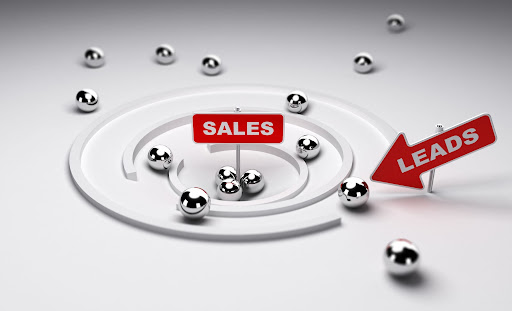Content Marketing: How to Speak to Your Audience
Gone are the days when companies relied on salespeople knocking on doors and cold calling potential customers to close a deal. While these practices still exist today, marketing has shifted to strategies that are more sustainable and cost-effective in the long run. Instead of chasing down prospects, content marketing is all about establishing thought leadership to draw people towards your brand. You want to produce content that resonates with your audience and speaks to the different stages of the buyer journey.
Content Marketing 101
There are many reasons why companies invest in content marketing. According to a study conducted by SEMRush, the top priorities for content marketers are generating quality leads, attracting website traffic, and improving brand reputation.
While there is no such thing as a one-size-fits-all content marketing strategy, understanding your audience is key to success.
With more than 15 years of experience in business communications and content marketing, this journalist-turned-marketer is passionate about telling stories and learning something new every day. We interviewed Dan to talk about the process of creating an effective content marketing strategy, how to measure success, and why marketing agencies should have a content marketing strategy.
You need to discover what they care about, and these things will be different depending on where they are in the buyer journey.
In your own words, what is content marketing?
Content marketing is a strategy that supports inbound digital marketing. If your business is based on inbound marketing, then content becomes the anchor for it.
You create content to take people through a journey. The buyer journey relates to acquisition. The customer journey relates to growth and expansion. You need to understand these two journeys in the context of your company and craft content that speaks to every stage of the funnel.
How do you strike the right balance between informing your audience and delivering a sales pitch?

In an inbound marketing context, content is really about thought leadership. It’s designed to draw people towards your brand and use you as a source of learning.
At the end of the day, you want to give your audience an informed opinion. However, there is a fine line between what you give people in terms of thought leadership and connecting the dots to your products.
Content marketing is not about delivering sales pitches. You need to be subtle. You have to ask: Who is your audience and what matters to them? Understanding your audience is the first step.
What are some of the differences between creating content for the top of the funnel versus the bottom of the funnel?
Top-of-funnel content is more focused on broader topics and has an educational aspect. Your audience might or might not know that they have an issue. Even when there is awareness of a challenge or an opportunity, they sometimes don’t know where to take that.
When it comes to your content marketing strategy, even if we’re talking about the top of the funnel, the right thing to do is to choose topics that ladder back to something that you offer. You definitely don’t want to be talking about issues that don’t relate to what you’re bringing to market. That’s a conversation that you don’t want to own or be engaged in.
For bottom-of-the-funnel content, the assumption is that, at this stage, your audience is looking at different solutions and even considering your company. So the focus becomes value proposition and differentiation. It’s a more sales-y discussion, but it’s not a marketing discussion. Don’t try to pitch me. Show, don’t tell.
What do you mean by “show, don’t tell”, and why is it more effective?
Customer testimonials, case studies, and success stories are all pieces of content that work really well with your audience at the bottom of the funnel. I’m showing you how to become more successful, I’m not telling you. It’s all about giving real examples so that people can envision themselves using your solutions.
Why is it effective? I think it harkens back to our basic nature as people. We love storytelling. When we were little kids, we grew up with our parents telling us stories. It’s a powerful mechanism.
Don’t just spit out a bunch of facts. Tell stories! It’s more convincing.
How do you determine if you should focus on content for the top of the funnel or the bottom of the funnel?

First, you need to understand the journey that people are taking with your company. How they identify problems, learn about your products, and make decisions will dictate the kind of content you need to create.
It’s also important that you categorize your content, so you’re being purposeful when you’re writing. You need to be able to say “this thing that I’m writing about today is targeted for people at this stage of the journey”.
After you put your content out there, pay attention to what the metrics tell you. See what people are consuming and that will help you find the right split.
Speaking of metrics, how do you measure the success of your content marketing strategy?
There are many different ways. You can track the page views and look at how much time people are spending on your content.
You can also measure the engagement. Are people sharing your content on social media? Are other websites referencing your content or giving you backlinks?
Perhaps your approach is more focused on conversions. In this case, you can measure the number of clicks in your call-to-action or the number of people signing up for your offers after consuming your content.
Everyone wants to rank higher on Google. Should you write content thinking about SEO first or that comes after the content is created?
The audience comes first. Write content that matters to them. Then, we apply the principles of SEO.
With that being said, there will be a few cases where SEO won’t be secondary. Sometimes you look at your SEO strategy and identify opportunities to rank really well on certain keywords that align with your business. And that’s a good strategy too.
At Vendasta, a lot of our channel partners are marketing agencies. Why should a marketing agency invest time and resources in content marketing?

The world has shifted and inbound marketing is the way to do marketing because it’s more cost-effective and sustainable. Content marketing is key to inbound marketing. If you get your strategy right, your content will keep feeding your funnel. It has a long shelf life.
Don’t get me wrong, people still do cold-calling and there is a place for that. But I think that the balance has clearly shifted. Every major business today is primarily focused on inbound marketing because it works.
As a marketing agency, how do I differentiate my content?
The simple answer is quality.
If you have great quality content, you really understand your audience, and your content is highly valued by them, you’ll stand out. Just look at some of the content out there on the internet. Not all of that is great and some of the content is not even good.
You don’t need to be unique or sound different from everyone else. That’s not the issue. You want to deliver the goods and be relevant to your audience.
For marketing agencies that are building a content marketing team, how do you identify great candidates for a content marketer role?
You need to hire strong writers. A lot of times they are people with a journalistic background. You want someone who understands the business and the industry you’re in. That’s important because they should be familiar with the subject matter.
A great candidate should also understand the principles of marketing and how it works. Writing the content is only half the battle, you need to amplify it. Being familiar with email marketing campaigns to introduce the content to the right audience is a great skill to have as well.
If you’re a marketing agency with a limited budget, should you start with PPC or organic content?
Organic is the gift that keeps on giving. If you get it right, then it’s sustainable.
PPC is kind of a one-off thing. It works for a while... And then it doesn’t.
Ideally, you’d have a combination of both. But if your budget is limited, I’d make the argument that organic is more important because the impact lasts longer.
The bad news about organic is that it takes a long time to scale while PPC gets you traffic right away. I like to look at PPC as a strategic lever that you might use relative to a time-sensitive campaign or offer. If you can’t wait for organic content to amplify your offer, that’s where PPC comes in.
But organic is the thing that will keep your business alive in the long run.

